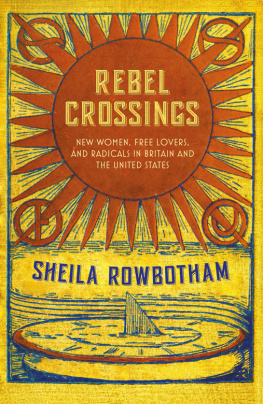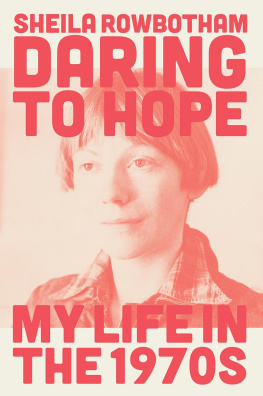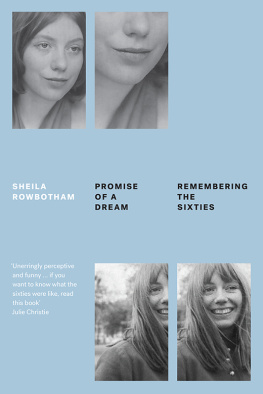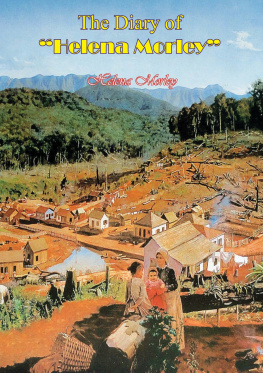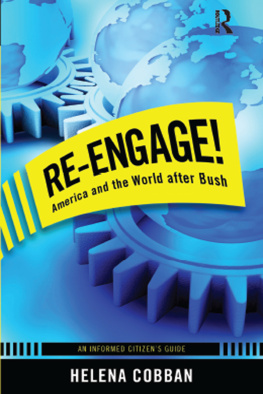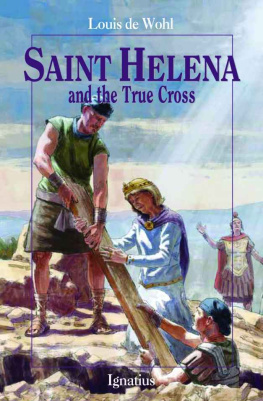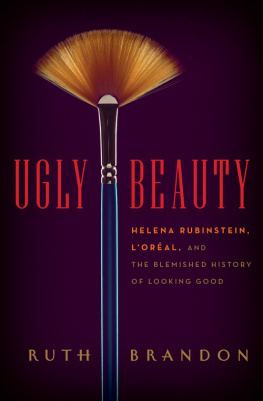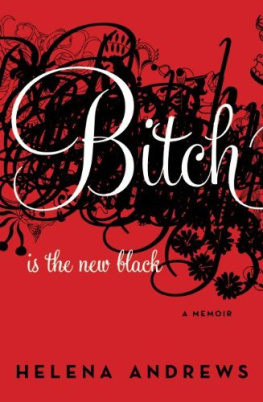Every effort has been made to identify and contact the copyright holders for the images used
herein. Verso and the author would like to extend their gratitude to the copyright holders,
and to apologise for any unwitting omissions in the crediting of copyright, which, on being
notified, we will seek to rectify in the next edition of this work.
I n the mid 1970s, I found a little book in the British Library, Whitmans Ideal Democracy and Other Writings by Helena Born, With a Biography by The Editor, Helen Tufts. The essays, written after Helena Born emigrated from Bristol to the United States in 1890, reveal a new woman with radical, unconventional views. Helen Tufts Biographical Introduction relates how, in Bristol during the late 1880s, Helena established a close friendship with another middle-class rebel, Miriam Daniell, became a socialist, supported strikers and left home to settle in the slums. In America Helena lived on a ranch in California, became a staunch member of the Boston Walt Whitman Fellowship, and was influenced by anarchism. Her inspirations were the American writers, Walt Whitman and Henry David Thoreau, along with the English libertarian socialist, Edward Carpenter.
I was already interested in Carpenter, the mild-mannered iconoclast who, from the 1880s, challenged the subordination of women, the suppression of same-sex desire, class inequality and environmental pollution. Rejecting Victorian acquisitiveness and antimacassars, he proclaimed the virtues of simplification, stone floors, bare stained boards, sandals and a vegetarian diet. Like many of his contemporaries, Carpenters socialism was about changing personal life as well as society.
Helena was expecting a visit from him at 12 noon on 25 January 1890, when she wrote from 9 Louisa Street in St Philips, one of Bristols poorest neighbourhoods, to her cousin in Devon, I have made the floor of my room shine with extra brightness this morning, in anticipation, with aid Maybe it was the beeswax sinking into wood, or perhaps Helenas anticipation, so resonant of the hopeful days of early socialism, which made this apparently inconsequential morning of rubbing and polishing wing vividly across the decades. The curiosity it evoked continued to hover.
Writing Edward Carpenter: A Life of Liberty and Love (2008) returned me to Helena in St Philips pursuing the aesthetic of simplification, while endeavouring with her friend Miriam Daniell to organise the unorganised. Again time concertinaed and I was left wondering what lay beyond those bare bees-waxed boards of a house that no longer existed.
I began in 2009 with a perplexing jigsaw of missing pieces and empty spaces, for Helen Tufts fails to mention that Miriams lover, a young Scot from Dunfermline, Robert Allan Nicol, was also living with the two women in St Philips. Moreover, she excises the anarchist basket-maker, William Bailie, with whom Helena later formed a free union in Boston. Many other questions followed. Why did a Google search for William Bailie direct me to the papers of a Helen Tufts Bailie? How was it that the forthright exponent of sexual emancipation, the new woman novelist, Gertrude Dix, who met Robert in the Bristol Socialist Society in 1889, ended up joining him in California in 1902?
Being a nosy person, committed to digging about in bits of the past buried in layers of obscurity, on I went. As the gaps filled, interweaving images emerged of a group of six searchers who tried to change society and themselves. Rebel Crossings traces the five migrants from Britain to the United States: Helena Born (18601901), Miriam Daniell (186194), Robert Allan Nicol (18681956), William Bailie (18661957), Gertrude Dix (18671950) and American-born Helen Tufts (18741962).
Gradually I began to see how they interacted with one another; Helen Tufts testifies in the journal she kept throughout her life: I fell in with Helena Born, and with her a new world opened to me, her world of Walt Whitman, Thoreau, radicalism.
I found that I, too, fell in with the lives of all six. None are particularly well known, being the kind of figures who surface as names and then slip tantalisingly back into the shadows. Helena, Miriam, Robert and William are mentioned in passing by historians writing on socialism and anarchism.
This kind of visibility was the exception. Instead, the six cluster in dissident networks mainly outside both the mainstream news and national metropolitan centres. Their geographical migrations spanned Bristol, Dunfermline, Edinburgh, Belfast, Manchester, London, Massachusetts and California, so Rebel Crossings follows them and the transmission of radical ideas back and forth across the Atlantic from diverse sites.
It was far more difficult than I initially imagined. Discovering what my six rebels had done involved innumerable labyrinthine trails. Working out what they thought and felt was necessarily a tentative process, for quite often the evidence simply was not there. In some instances I could establish juxtapositions without being able to prove an explicit intellectual provenance. As for feelings, attempting to explore the motivations of the famous who declare themselves is difficult enough; pursuing the relatively unknown is far more testing. For, even when their deeds are on record, their subjectivity often is not. Nonetheless, starting from apparently obscure vantage points opens new perspectives, modifying how wider interconnections and movements can be regarded.
Helen and Helena left collections of papers, and the other four created a paper trail through their writings and activism, which could be supplemented by family documents and memories. So I was able to trace opinions shifting and relocating as new concepts were grafted upon old, and gradually the six ceased to be simply names and acquired personal and social biographies. Looking at an interacting group revealed their consciousness emerging dynamically through their relationships with one another.
Helens extensive manuscript journal was invaluable. She began keeping it in 1886. Hence, from the age of twelve she lived self-consciously; documenting, collating, editing and eventually typing it up in the 1950s. Compelled by a desire to ascribe meaning to what was happening to her, periodically she would express doubts about

